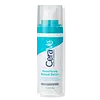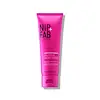What's inside
What's inside
 Key Ingredients
Key Ingredients

 Benefits
Benefits

 Concerns
Concerns

 Ingredients Side-by-side
Ingredients Side-by-side

Water
Skin ConditioningPropanediol
SolventDimethicone
EmollientCetearyl Ethylhexanoate
EmollientNiacinamide
SmoothingAmmonium Polyacryloyldimethyl Taurate
Emulsion StabilisingDipotassium Glycyrrhizate
HumectantHydrogenated Lecithin
EmulsifyingPotassium Phosphate
BufferingCeramide NP
Skin ConditioningCeramide AP
Skin ConditioningCeramide EOP
Skin ConditioningCarbomer
Emulsion StabilisingCetearyl Alcohol
EmollientBehentrimonium Methosulfate
Dimethiconol
EmollientLecithin
EmollientSodium Citrate
BufferingRetinol
Skin ConditioningSodium Hyaluronate
HumectantSodium Lauroyl Lactylate
EmulsifyingCholesterol
EmollientPhenoxyethanol
PreservativeAlcohol
AntimicrobialIsopropyl Myristate
EmollientCaprylyl Glycol
EmollientCitric Acid
BufferingTrisodium Ethylenediamine Disuccinate
Pentylene Glycol
Skin ConditioningPhytosphingosine
Skin ConditioningXanthan Gum
EmulsifyingPolysorbate 20
EmulsifyingEthylhexylglycerin
Skin ConditioningWater, Propanediol, Dimethicone, Cetearyl Ethylhexanoate, Niacinamide, Ammonium Polyacryloyldimethyl Taurate, Dipotassium Glycyrrhizate, Hydrogenated Lecithin, Potassium Phosphate, Ceramide NP, Ceramide AP, Ceramide EOP, Carbomer, Cetearyl Alcohol, Behentrimonium Methosulfate, Dimethiconol, Lecithin, Sodium Citrate, Retinol, Sodium Hyaluronate, Sodium Lauroyl Lactylate, Cholesterol, Phenoxyethanol, Alcohol, Isopropyl Myristate, Caprylyl Glycol, Citric Acid, Trisodium Ethylenediamine Disuccinate, Pentylene Glycol, Phytosphingosine, Xanthan Gum, Polysorbate 20, Ethylhexylglycerin
Water
Skin ConditioningCetearyl Alcohol
EmollientGlycerin
HumectantGlyceryl Stearate Se
EmulsifyingPerlite
AbsorbentCaprylic/Capric Triglyceride
MaskingStearic Acid
CleansingAmmonium Acryloyldimethyltaurate/Vp Copolymer
Propylene Glycol
HumectantPolyacrylamide
Phenoxyethanol
PreservativeBenzyl Alcohol
PerfumingSalicylic Acid
MaskingC13-14 Isoparaffin
EmollientParfum
MaskingPropanediol
SolventSodium Hydroxide
BufferingDisodium EDTA
Laureth-7
EmulsifyingEthylhexylglycerin
Skin ConditioningDehydroacetic Acid
PreservativeAlcohol
AntimicrobialPolygonum Bistorta Root Extract
Skin ConditioningTocopheryl Acetate
AntioxidantNelumbo Nucifera Flower Extract
Skin ConditioningNymphaea Coerulea Flower Extract
Skin ConditioningCI 17200
Cosmetic ColorantWater, Cetearyl Alcohol, Glycerin, Glyceryl Stearate Se, Perlite, Caprylic/Capric Triglyceride, Stearic Acid, Ammonium Acryloyldimethyltaurate/Vp Copolymer, Propylene Glycol, Polyacrylamide, Phenoxyethanol, Benzyl Alcohol, Salicylic Acid, C13-14 Isoparaffin, Parfum, Propanediol, Sodium Hydroxide, Disodium EDTA, Laureth-7, Ethylhexylglycerin, Dehydroacetic Acid, Alcohol, Polygonum Bistorta Root Extract, Tocopheryl Acetate, Nelumbo Nucifera Flower Extract, Nymphaea Coerulea Flower Extract, CI 17200
 Reviews
Reviews

Ingredients Explained
These ingredients are found in both products.
Ingredients higher up in an ingredient list are typically present in a larger amount.
Alcohol comes in many different forms. Different types of alcohol will have different effects on skin. This ingredient is usually an astringent alcohol.
These alcohols are drying on the skin. They may strip away your skin's natural oils and even damage your skin barrier. Astringent alcohols may also irritate skin.
Other types of astringent alcohols include:
According to the National Rosacea Society based in the US, you should be mindful of products with these alcohols in the top half of ingredients.
Any type of sanitizing product will have high amounts of alcohol to help kill bacteria and viruses.
Fatty alcohols come from plant oils such as coconut oil. These can help hydrate the skin and are non-irritating. Some fatty alcohols include cetyl and stearyl alcohol.
Learn more about AlcoholCetearyl alcohol is a mixture of two fatty alcohols: cetyl alcohol and stearyl alcohol. It is mainly used as an emulsifier. Emulsifiers help prevent the separation of oils and products. Due to its composition, it can also be used to thicken a product or help create foam.
Cetearyl alcohol is an emollient. Emollients help soothe and hydrate the skin by trapping moisture.
Studies show Cetearyl alcohol is non-toxic and non-irritating. The FDA allows products labeled "alcohol-free" to have fatty alcohols.
This ingredient is usually derived from plant oils such as palm, vegetable, or coconut oils. There is debate on whether this ingredient will cause acne.
Due to the fatty acid base, this ingredient may not be Malassezia folliculitis safe.
Learn more about Cetearyl AlcoholEthylhexylglycerin (we can't pronounce this either) is commonly used as a preservative and skin softener. It is derived from glyceryl.
You might see Ethylhexylglycerin often paired with other preservatives such as phenoxyethanol. Ethylhexylglycerin has been found to increase the effectiveness of these other preservatives.
Phenoxyethanol is a preservative that has germicide, antimicrobial, and aromatic properties. Studies show that phenoxyethanol can prevent microbial growth. By itself, it has a scent that is similar to that of a rose.
It's often used in formulations along with Caprylyl Glycol to preserve the shelf life of products.
Propanediol is an all-star ingredient. It softens, hydrates, and smooths the skin.
It’s often used to:
Propanediol is not likely to cause sensitivity and considered safe to use. It is derived from corn or petroleum with a clear color and no scent.
Learn more about PropanediolWater. It's the most common cosmetic ingredient of all. You'll usually see it at the top of ingredient lists, meaning that it makes up the largest part of the product.
So why is it so popular? Water most often acts as a solvent - this means that it helps dissolve other ingredients into the formulation.
You'll also recognize water as that liquid we all need to stay alive. If you see this, drink a glass of water. Stay hydrated!
Learn more about Water